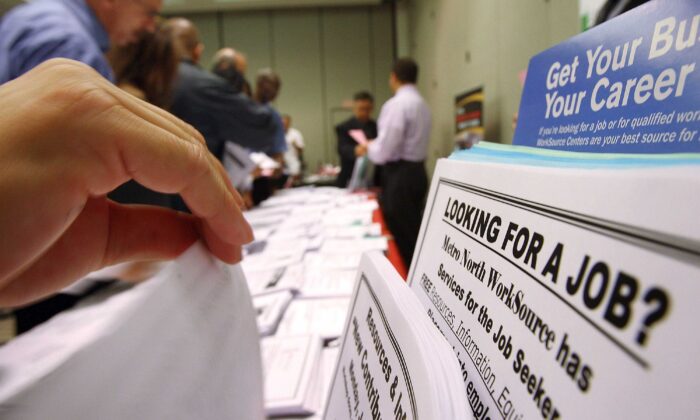Sean Snaith, an economic forecaster, mentioned that while the recent job numbers may seem positive, there is a hint of concern. The fear among Americans about potential job loss and financial struggles is at its peak in years. Data from the Survey of Consumer Expectations by the Federal Reserve Bank of New York indicated that worries about job loss and debt payment are rising. Additionally, the probability of finding a job decreased, and economists predict a slowdown in hiring in the coming months. Despite the strong national labor market, there are underlying issues such as the rise in multiple-job holders and concerns about automation replacing workers. The escalating cost of living and high interest rates are contributing to fears about uncontrolled debt among Americans. In the fourth quarter of 2023, total household debt increased by $212 billion to reach $17.5 trillion, as reported by the Federal Reserve. Credit card balances rose by $50 billion to $1.13 trillion, mortgage balances went up by $112 billion to $12.25 trillion, and auto loan balances increased by $12 billion to $1.61 trillion. Delinquency rates for all types of debt, excluding student loans, saw an increase in Q4 2023, with 3.1 percent of outstanding debt in some form of delinquency. Approximately 8.5 percent of credit card balances and 7.7 percent of auto loans moved into delinquency. Serious credit card delinquencies surpassed pre-pandemic levels, especially among younger borrowers.
Additionally, the average interest rate for credit cards as of April 12 is 27.89 percent, as per Forbes Advisor’s report on weekly credit card rates. This rise in interest rates, coupled with increasing balances, is causing financial strain for consumers, potentially impacting the economy. Economists warn that further interest rate hikes could push the economy into a recession, emphasizing the importance of managing debt responsibly.
Source link





